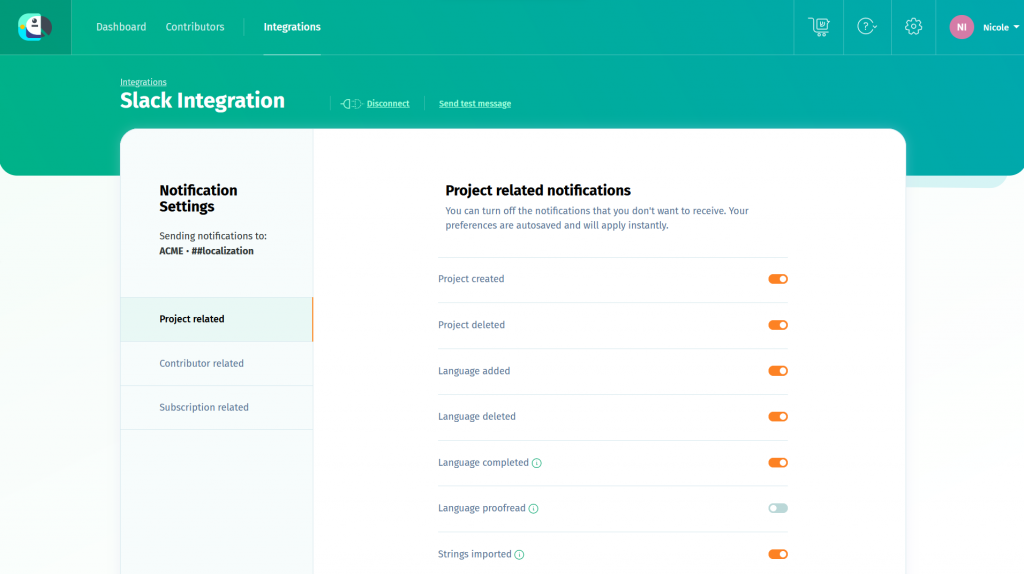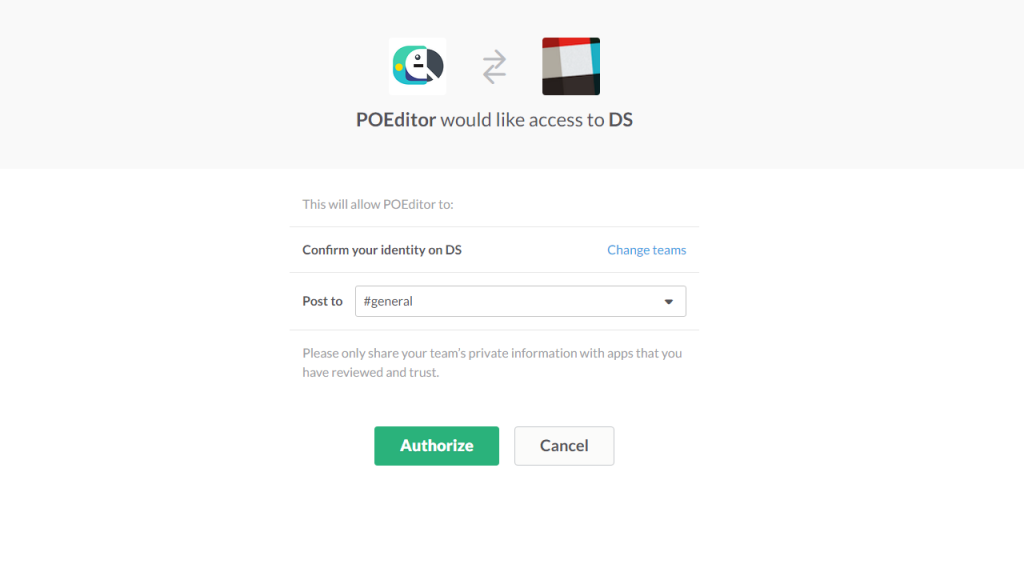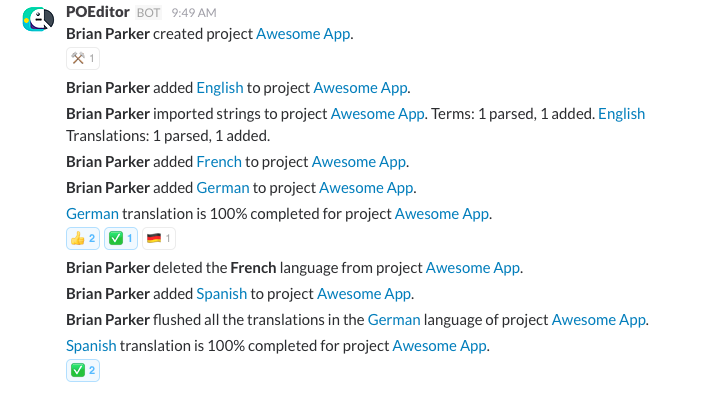Connectivity is essential to a flexibile and efficient localization workflow. Being connected to your team at all times and also being connected to the constant flow of events during the localization process, you can react on the spot whenever something needs attention, increasing productivity and saving a lot of resources on the way. With this in mind, and somehow as a logical step to offering you a better solution for collaborative localization, we’ve decided to add one more option to the list of integrations available with the POEditor localization management platform- Slack.
The walkthroughs below will help you connect your POEditor account to Slack. Make sure you log in both to the POEditor localization platform and to your preferred communication service before you begin.
How do I integrate Slack?
Go to the Integrations page in your POEditor account, click on Slack, and then click on Connect.

On Slack’s authorization page, pick where you want to receive the notifications regarding your localization projects (Channels or Direct Messages), then authorize the POEditor localization app.

After connecting Slack to POEditor, you can send a test to see if the Slack integration works. If the test message appears where it should, your work here is done.
What events in my localization projects will I be notified about?
At the moment, the Slack integration sends a notification when:
- a project was created/deleted
- a language was added/completed/deleted/proofread
- strings were imported
- a contributor was added/removed/joined the project
- a comment was added
- AT characters were used
- a translation order was completed
- translations were flushed from a languages
- all terms and translations were flushed from the project
- translations were updated via API
- a term was manually added in the UI
- terms were added via API
- terms were synced via API
- new terms were added (regardless of how)
- the string limit was reached
- the subscription renewal failed

All the notifications are turned on by default, but you can switch off any of them if you wish from the integration page.
As a final consideration, please note that the integrations page is only accessible to project owners, because all integrations are done on an account level.
You can now rest assured that you (and your localization team) will always be on the same page with the events taking place in your software localization projects.